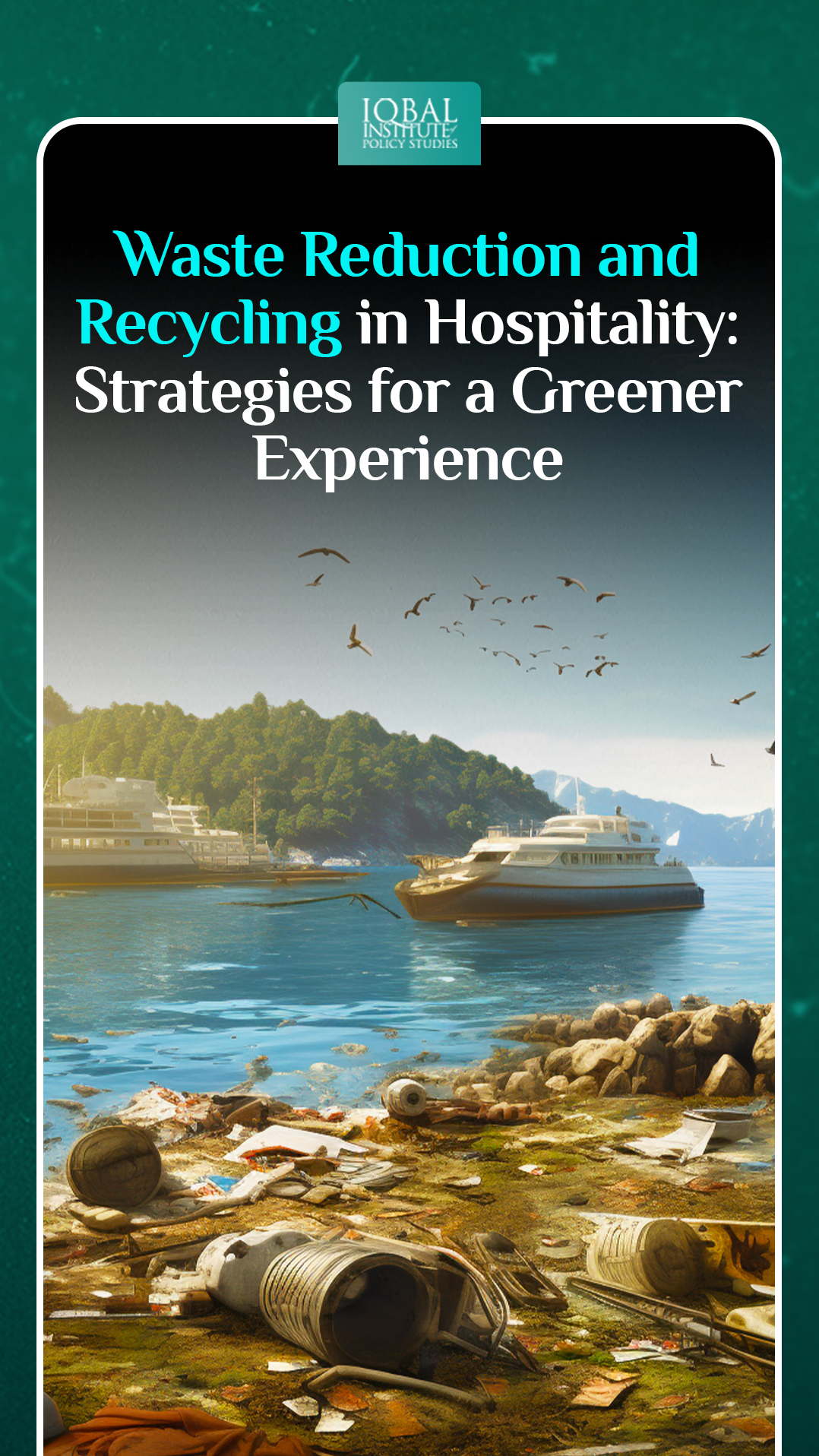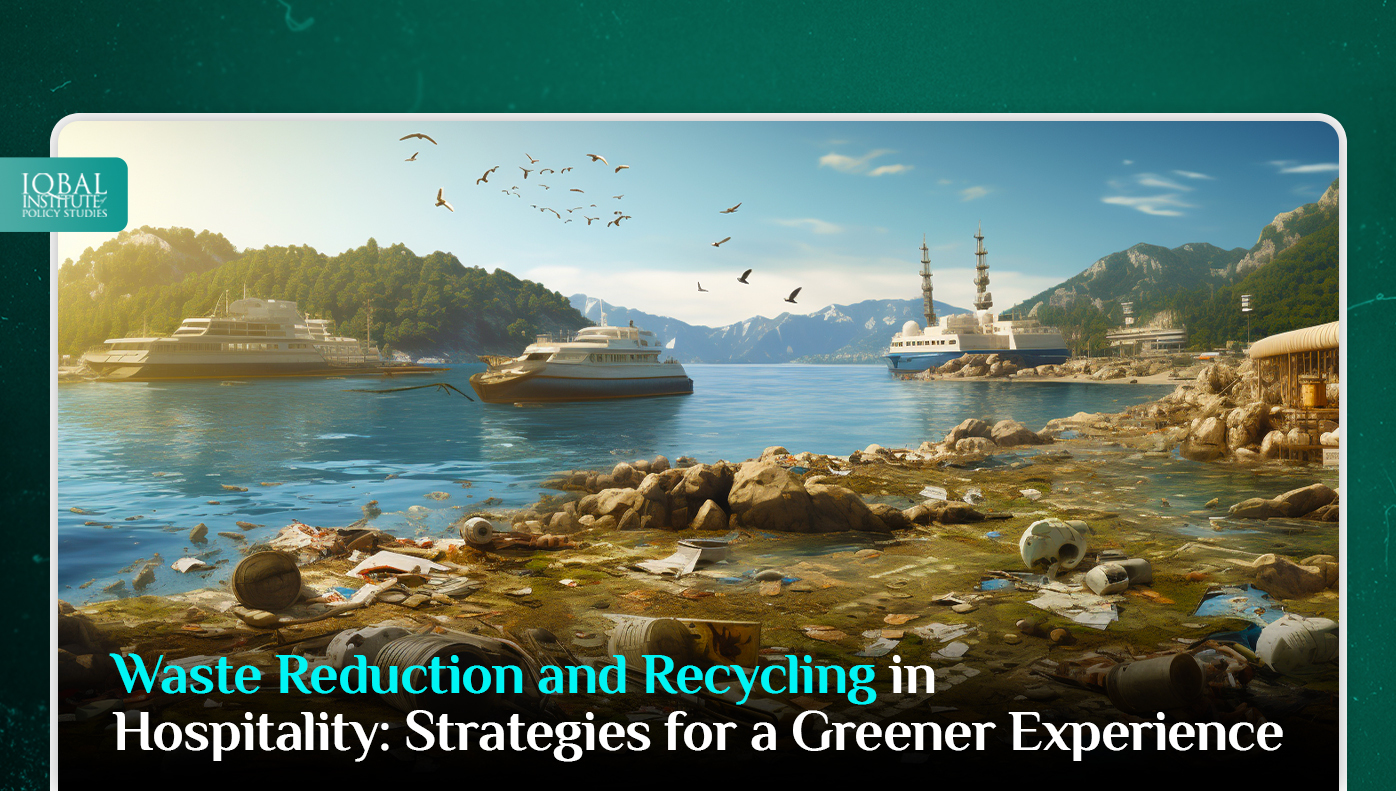In today’s rapidly evolving world, sustainability has become a paramount concern across industries. One sector that’s making significant strides toward a greener future is the hospitality industry. As travelers and consumers become more conscious of their environmental impact, hotels, restaurants, and other hospitality businesses are reevaluating their practices to minimize waste and promote recycling. In this extended blog, we’ll delve into the strategies that the hospitality industry can adopt for waste reduction and recycling, creating a more environmentally-friendly experience for guests while contributing to a healthier planet.
Understanding the Waste Challenge:
The hospitality industry, while catering to the comfort and enjoyment of guests, has long grappled with a formidable challenge: waste management. This sector’s operations, ranging from hotels and restaurants to resorts and event venues, often lead to the generation of substantial waste, leaving an environmental footprint that can no longer be ignored. Recognizing the gravity of this issue is the first step toward implementing effective waste reduction and recycling strategies that align with the industry’s transition toward a more sustainable future. One of the most glaring waste challenges in the hospitality sector revolves around food. Restaurants, banquet halls, and catering services, in their pursuit of exceptional dining experiences, frequently overestimate demand and generate significant food waste. This not only squanders precious resources but also contributes to the release of harmful greenhouse gases when this waste decomposes in landfills.
Moreover, the omnipresence of single-use plastics has further exacerbated the problem. From disposable cutlery and packaging to plastic water bottles, these items are emblematic of convenience at the cost of our planet’s health. Hospitality businesses have found themselves at the crossroads of consumer expectations for convenience and the urgent need to reduce plastic waste. In addition to physical waste, the hospitality industry’s high energy and resource consumption must not be overlooked. From the energy required to power facilities to the water needed for daily operations, the demand for resources is considerable. Efficient usage of these resources not only reduces operating costs but also minimizes the strain on local ecosystems.
Understanding these waste challenges is crucial for the hospitality industry to pave the way for a greener experience. Beyond the environmental repercussions, there’s a growing demand from guests for responsible and ethical practices. This shift in consumer behavior has prompted hospitality establishments to reevaluate their waste management strategies and adopt innovative solutions that prioritize sustainability without compromising on service quality. By acknowledging the waste challenges within the hospitality sector, we set the stage for an exploration of effective strategies to mitigate these issues. From food waste reduction initiatives and plastic-free campaigns to comprehensive recycling programs and energy-efficient practices, there’s a multitude of approaches available. Embracing these strategies not only ensures a positive impact on the environment but also positions the industry as a beacon of sustainable excellence in a world seeking more responsible ways to indulge in leisure and luxury.
Food Waste Management
Food Waste Management in Hospitality: Strategies for a Greener Experience
Effective food waste management is a crucial aspect of creating a sustainable and eco-friendly experience in the hospitality industry. By implementing the following strategies, hotels and restaurants can significantly reduce their environmental impact and contribute to waste reduction:
Menu Optimization
Design menus that prioritize the utilization of ingredients across multiple dishes to minimize waste and spoilage.
Portion Control
Offer flexible portion sizes to guests, encouraging them to order only what they can consume, thus reducing excess food waste.
Educating Staff
Train kitchen staff about proper food handling techniques to prevent over-preparation and spoilage.
Composting
Establish on-site composting systems for organic waste, diverting it from landfills and creating nutrient-rich compost for landscaping.
Food Donation Programs
Partner with local charities to donate surplus food to those in need, reducing waste while benefiting the community.
Monitoring and Analysis
Implement tracking systems to monitor food consumption patterns and identify areas for waste reduction.
Creative Cooking Techniques
Explore creative culinary techniques to utilize food scraps and “ugly” produce that would otherwise be discarded.
Guest Awareness
Raise awareness among guests about the establishment’s commitment to reducing food waste, encouraging them to make mindful dining choices.
Plastic-Free Initiatives
Reusable Containers
Encourage guests to bring their own reusable containers for takeout and leftovers. By providing an option to use their containers, you’re minimizing the need for disposable packaging.
Biodegradable Packaging
Opt for biodegradable or compostable packaging materials for takeaway orders. These eco-friendly alternatives break down naturally, reducing the impact on landfills and oceans.
Water Stations
Install water stations in common areas and guest rooms to promote the use of reusable water bottles. This reduces the consumption of single-use plastic water bottles, which are a significant source of plastic waste.
Straw-Free Policy
Implement a policy that serves drinks without plastic straws, or offer biodegradable or reusable alternatives. This small change can lead to a substantial reduction in plastic waste.
Bulk Amenities
Provide bulk dispensers for toiletries instead of single-use plastic bottles. This reduces the amount of plastic waste generated from guest rooms.
Plastic-Free Events
If your establishment hosts events or conferences, work with organizers to minimize plastic usage. Use reusable name badges, utensils, and decorations, and avoid single-use plastics during meals.
Staff Training
Educate your staff about the importance of plastic reduction and train them to offer alternatives and explain plastic-free initiatives to guests.
Collaboration with Suppliers
Work with suppliers to source products with minimal plastic packaging. Encourage them to adopt sustainable packaging practices to support your plastic-free goals.
Recycling Programs
Bin Placement
Clearly label recycling, composting, and landfill bins in public areas and guest rooms for easy waste segregation.
Staff Training
Educate staff about proper waste separation and recycling practices to ensure effective implementation.
Partnerships
Collaborate with local recycling centers to ensure proper disposal and processing of recyclable materials.
Guest Awareness
Provide information in rooms about the property’s recycling efforts, encouraging guests to participate.
Energy and Resource Conservation
Energy-Efficient Technology
Install energy-saving technologies such as LED lighting, motion sensors, and smart thermostats to reduce energy consumption.
Water-Saving Fixtures
Implement water-saving faucets, showerheads, and toilets to minimize water waste without compromising guest comfort.
Linen Reuse Programs
Encourage guests to reuse towels and linens, reducing water and energy usage associated with frequent laundering.
Local Sourcing
Source ingredients and materials locally to reduce transportation-related carbon emissions.
Efficient Appliances
Choose energy-efficient appliances for guest rooms and kitchens to cut down on energy consumption.
Conclusion
In conclusion, the hospitality industry has a pivotal role to play in creating a more sustainable future. By implementing strategies for waste reduction and recycling, businesses can minimize their environmental impact, improve their reputation, and contribute to the larger goal of global sustainability. As travelers increasingly seek out eco-friendly experiences, adopting these strategies not only benefits the environment but also positions hospitality establishments as leaders in responsible tourism.
This article is written by Radma Nouman. Radma is a research analyst at the Iqbal Institute of Policy Studies (IIPS).



Leave a Reply